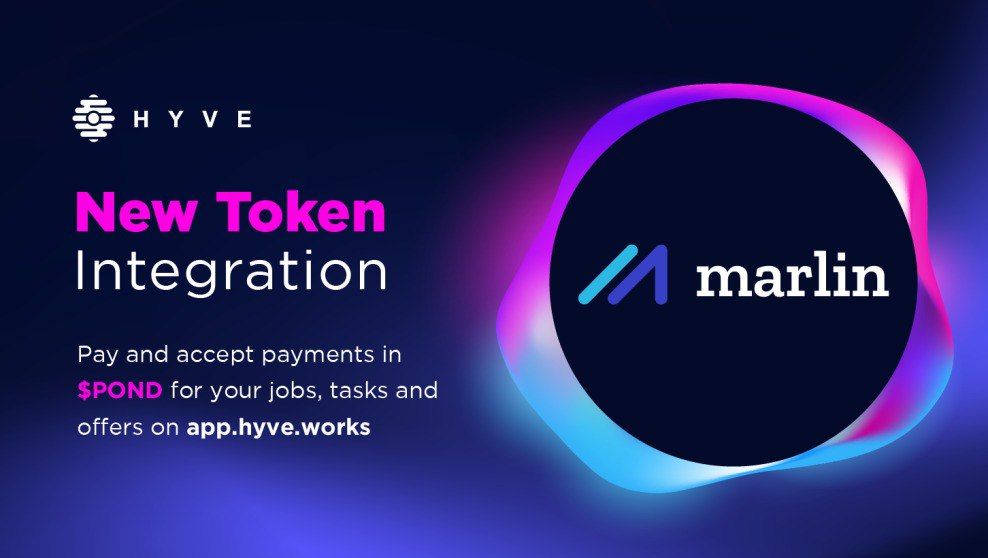Get a taste of Marlin Protocol!

As summer's around the corner, and days are getting longer so does our list of token integrations! We have made it clear that HYVE is on the run of becoming a universal platform that will provide you with anything you need or want, therefore let's see what this week's integration is all about!
Did you know that Marlins are some of the fastest fish in the world? Well, buckle up and add the contract address into your e-wallet to enjoy the experience of a faster DeFi and Web 3.0!
ETH: 0x57b946008913b82e4df85f501cbaed910e58d26c
Meet Marlin!
Marlin is an open protocol that provides a high-performance programmable network infrastructure for DeFi and Web 3.0. Their latest product, Oyster, allows backend apps too heavy for smart contracts to be deployed onto a decentralized off-chain network. It allows servers to be deployed and maintained using smart contract calls and crypto payments. Some examples include frontend hosting, ZK proof generation, RPCs and gateways.

It’s true, smart contracts form the backbone of Web3. That being said, interacting with these smart contracts requires accessing dApps that may be hosted on centralized servers and while this may have been the norm, Oyster is here to shake things up.
Current trade-offs
dApps have long accepted certain tradeoffs when it comes to hosting.
- DAOs entrust community members with SSH keys to access servers.
- Foundations are set up to pay server bills.
- Disproportionate incentives are given to encourage third parties to fulfill critical functions like oracles and liquidations.
At the end of the day, server maintenance creates a single point of failure.
How does Oyster work?
With Oyster, users will be able to maintain servers using smart contracts without needing to open accounts with cloud providers. Instead, they will be able to tap into third-party resources made available in a decentralized marketplace. Hardware operators who provide said resources will be able to take instructions from users to start, stop or run certain programs that the user requires.
You may ask, and rightfully so, what stops the operators from tampering with the code that the user deploys on their hardware?
Under the hood
Oyster leverages the power of Trusted Execution Environments (TEEs) which provide hardware-level isolation and memory encryption to isolate application code and data from anyone with administrative privileges. This way, users who outsource operations can be sure that instructions cannot be manipulated in any way or form.
The push toward decentralization
As Web3 grows, we’re slowly seeing a shift and increased reliance on decentralized solutions especially when it comes to infrastructure, the base layer on which the ecosystem operates.
Marlin intends to cater to this constant demand via Oyster and they’re gearing up for launch as we speak. Follow them on Twitter to track when Oyster is unleashed!
We have also added a Youtube video down below if you want to find out more about this project, just click on the play button down below!
What about HYVE?
HVYE V2.5 is nearing its launch date, and we have started giving you sneak peeks into the new features that are awaiting you. We are creating a unique product, focusing on usability and simplifying the overall experience for our freelancers.
This will not only foster adoption but will provide a new web3 platform to rival traditional freelancing platforms - and we know that we are experts in what we are doing. Follow our latest journey on Twitter.
